Who are the attorneys asking questions at the public impeachment hearings?
Quick facts behind Steve Castor and Daniel Goldman.
The second week of public impeachment hearings began Tuesday, featuring many faces familiar to viewers who have been paying close attention and the faces of two attorneys, who may be unfamiliar.
The first witnesses this week are Lt. Col. Alexander Vindman, from the National Security Council, and Jennifer Williams, Vice President Mike Pence's special advisor for Europe and Russia.
Under the rules set for these hearings, Chairman Adam Schiff, D-Calif., and Ranking Member Devin Nunes, R-Calif., are given 45 minutes each to establish the hearing's narrative. However, they are allowed to yield that time to counsel -- but not to other members of the committee. They both yielded large chunks of their time Nov. 13 and Nov. 15 to attorneys.
On behalf of the Democrats, there's Daniel Goldman, the director of investigations for the House Intelligence Committee. For the Republicans, there's Steve Castor, the chief investigative counsel for House Oversight Committee Republicans.
The hearings are largely about a July 25 phone call between President Donald Trump and Ukrainian President Volodymyr Zelenskiy, amid the impeachment inquiry, where a whistleblower and House Democrats argue Trump allegedly pressured the foreign leader to conduct an investigation into former Vice President Joe Biden and son, Hunter, while he sat on the board of Ukraine's energy company, Burisma.
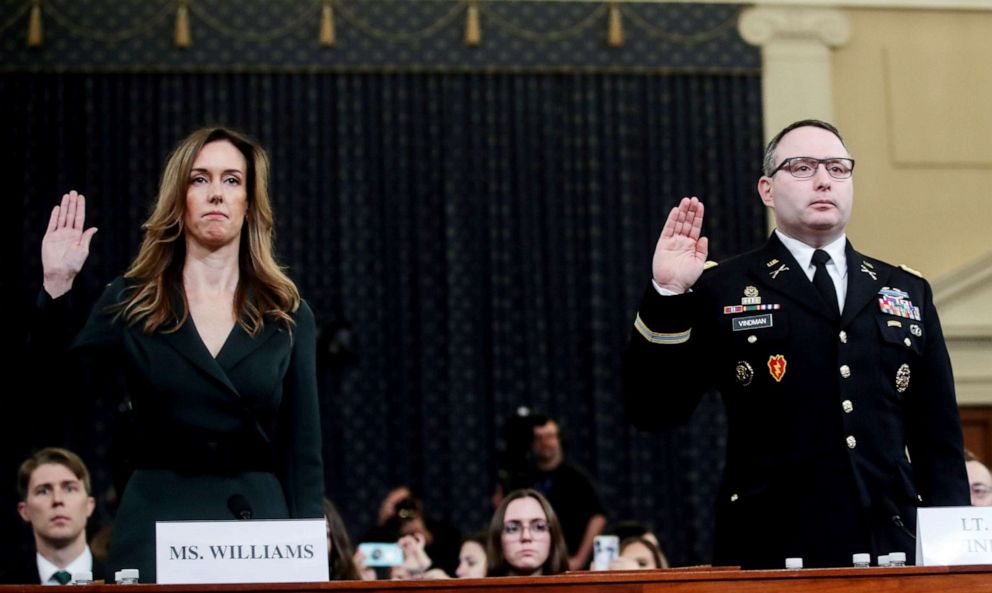
Both Vindman and Williams told the House they remember hearing the word "Burisma" on the July 25 phone call, but that it was omitted in the transcript.
"It's not a significant omission," Vindman said, but said he tried to correct the record.
Nunes questioned Williams on the Burisma issue, she said she had not been working on Ukraine policy at the time.
Last week, another rough transcript was released by the White House detailing Trump's first phone call with Ukraine's president on April 21, shortly after Zelenskiy was elected. The congratulatory phone call between the two presidents contained no mention of corruption, despite the White House shortly after the call saying Trump had broached the subject.
On Tuesday, Vindman testified that he was on that call, and while corruption was part of the National Security Council's recommended talking points for the president, he said he didn't recall the issue of corruption coming up on the call.
Vindman told the House Intelligence Committee and counsel that he raised concerns "out of a sense of duty."
"My intent was to raise these concerns because they had significant national security implications," he said. "I never thought that I'd be sitting here testifying in front of this committee and the American public about my actions"
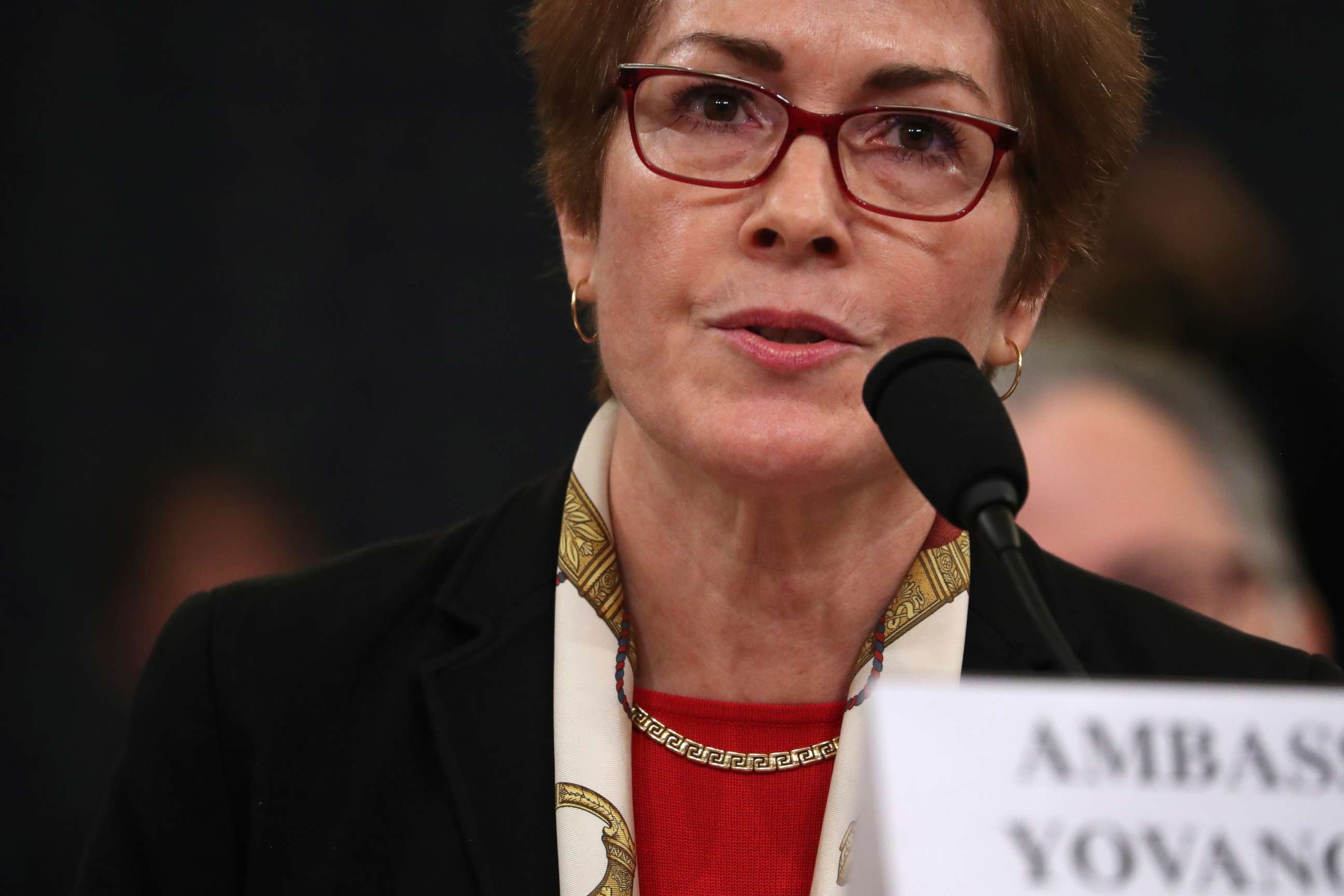
During Friday's public testimony, Schiff described the witness, former Ukraine Amb. Marie Yovanovitch, as an "exemplary officer" in his opening statement. Yovanovitch was invited to address circumstances around her departure from her post amid attacks in conservative media and by Ukraine's former public prosecutor, who accused her of giving him a "do not prosecute" list and blocking him from traveling to the U.S. to investigate Democrats after she publicly criticized the country's lack of progress in tackling corruption.
In his opening statement, Nunes hit many of the same notes he did on Nov. 13, accusing Democrats of a maniacal focus of impeaching a "duly-elected president," and trumpeting "Second and thirdhand information" of diplomats rather than the "the record" of the president's phone call. He even used some of his time to read the transcript released Friday by the White House of Trump's first call with Zelenskiy that took place in April.
The attorneys were hesitant to go after Yovanovitch personally, mainly focusing on the events during her time as ambassador.
Castor spent much of his time Friday questioning the former ambassador on her claims the Ukrainian government and members of the Trump administration worked together to potentially oust her.
He asked, "Do you believe your removal was part of some scheme to, to make it easier for elements of the Ukrainian establishment do things counter to U.S. interests?"
Yovanovich agreed, saying "I think that's certainly what the Ukrainian establishment hoped."
During the hearing on Nov. 13, Schiff and Nunes commissioned the seasoned attorneys to ask more in-depth cross-examination and direct questions than on Friday, during their allotted time frames with acting Amb. William Taylor, the top U.S. diplomat in Ukraine, and George Kent, a senior State Department official.
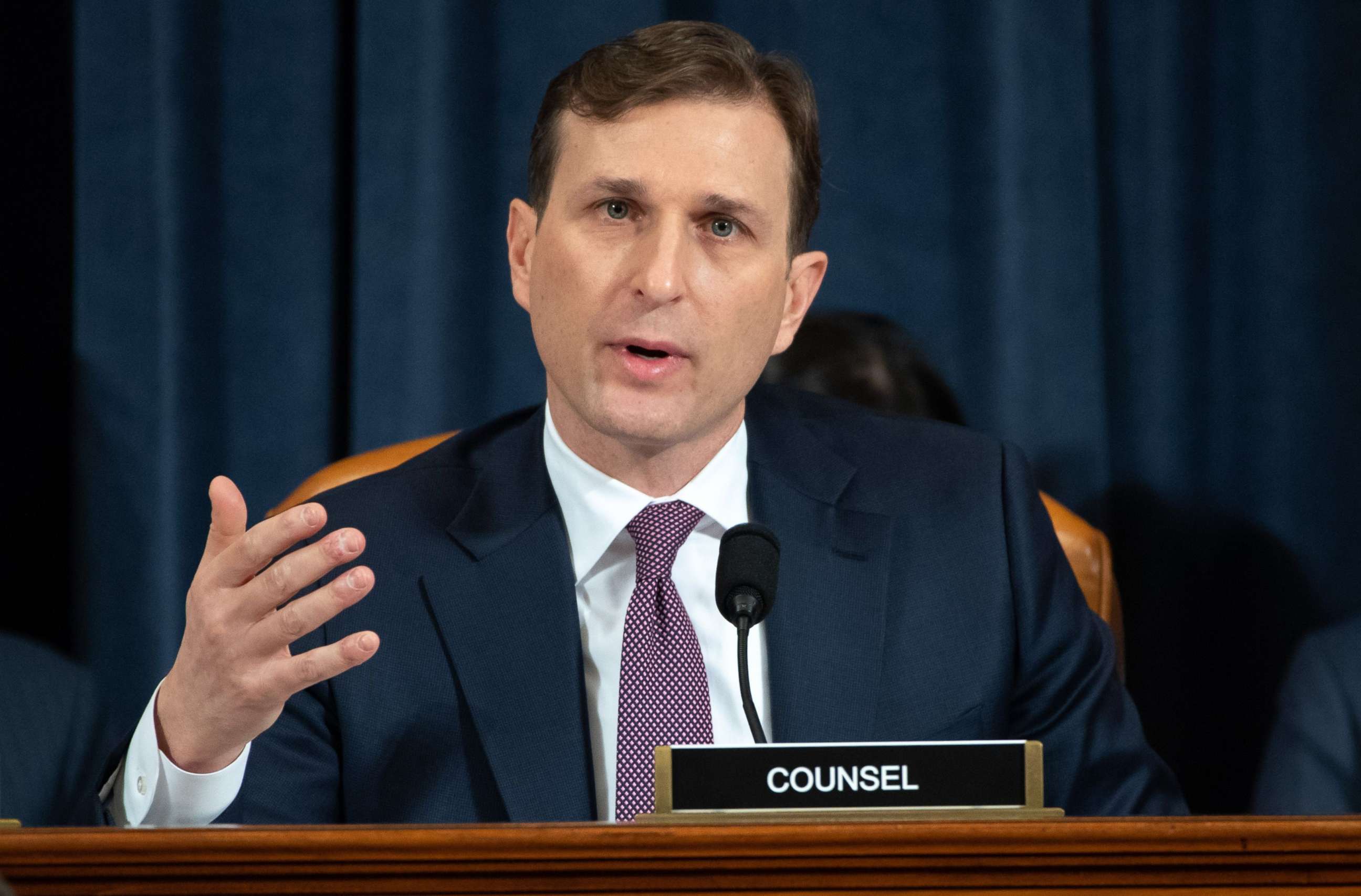
Nine minutes after Schiff asked Taylor to re-read his most notable text messages to U.S. envoy Kurt Volker and U.S. ambassador to the European Union Gordon D. Sondland, the floor was given to Goldman.
Goldman left his job as a seasoned federal prosecutor with the Southern District of New York in 2017 in opposition to Trump's policies. He went on to become a contributor with MSNBC/NBC and was hypercritical of the Trump administration during the Mueller probe.
In his questioning on behalf of the Democrat, Goldman led Taylor and Kent to repeat and highlight some of their most forceful and critical statements.
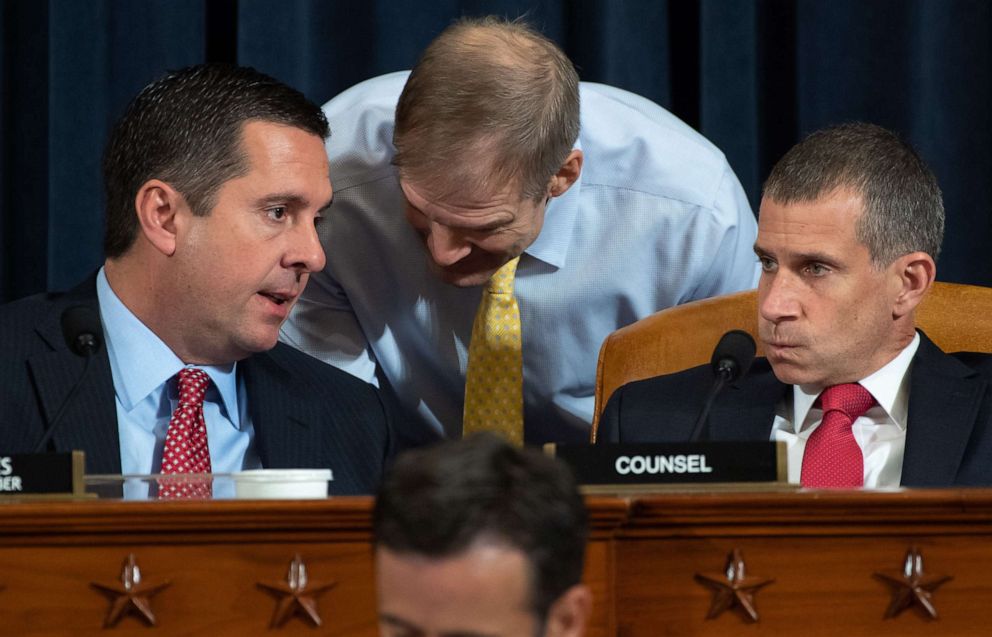
Castor, on the other hand, has more experience with these types of proceedings.
He served on the top investigative panel in the House since 2005 and has been involved in tons of high-profile probes as chief investigator for House Oversight and Reform. He was at the tip of the spear for cases like the "Fast and Furious" gun-running probe, conservative bias at the IRS and steroids in baseball.
Nunes turned questioning over to Castor after 10 minutes, and Castor used that time in part to push Taylor to agree that a backchannel for foreign policy involving Trump's lawyer, Rudy Giuliani, wasn't "as outlandish as it could be."
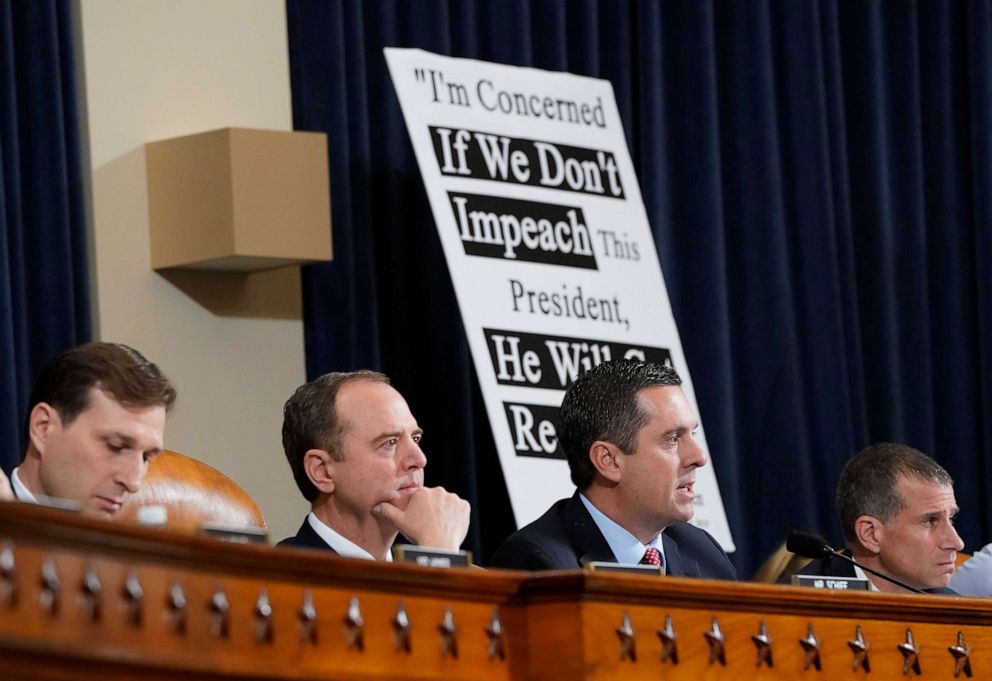
Though the House Intelligence Committee has led the impeachment effort, Castor has conducted the bulk of staff questioning for the minority behind closed doors.
At the close of Friday's hearing, the committee is expected to move into a closed session to interview David Holmes, the staffer Taylor referenced in his testimony who allegedly overhead a different conversation between Trump and Sondland referencing "investigations."
The public hearings are scheduled to continue next week.
On Tuesday afternoon, former U.S. envoy to Ukraine Kurt Volker, and Timothy Morrison, the NSC's Russia expert, will appear before the Intelligence Committee.
Five other officials are scheduled to testify in public on Wednesday and Thursday, including: Gordon Sondland, the U.S. ambassador to the European Union who amended his closed-door testimony to lawmakers last week, Laura Cooper, a senior Defense Department official, and two State Department officials, David Hale and David Holmes.




